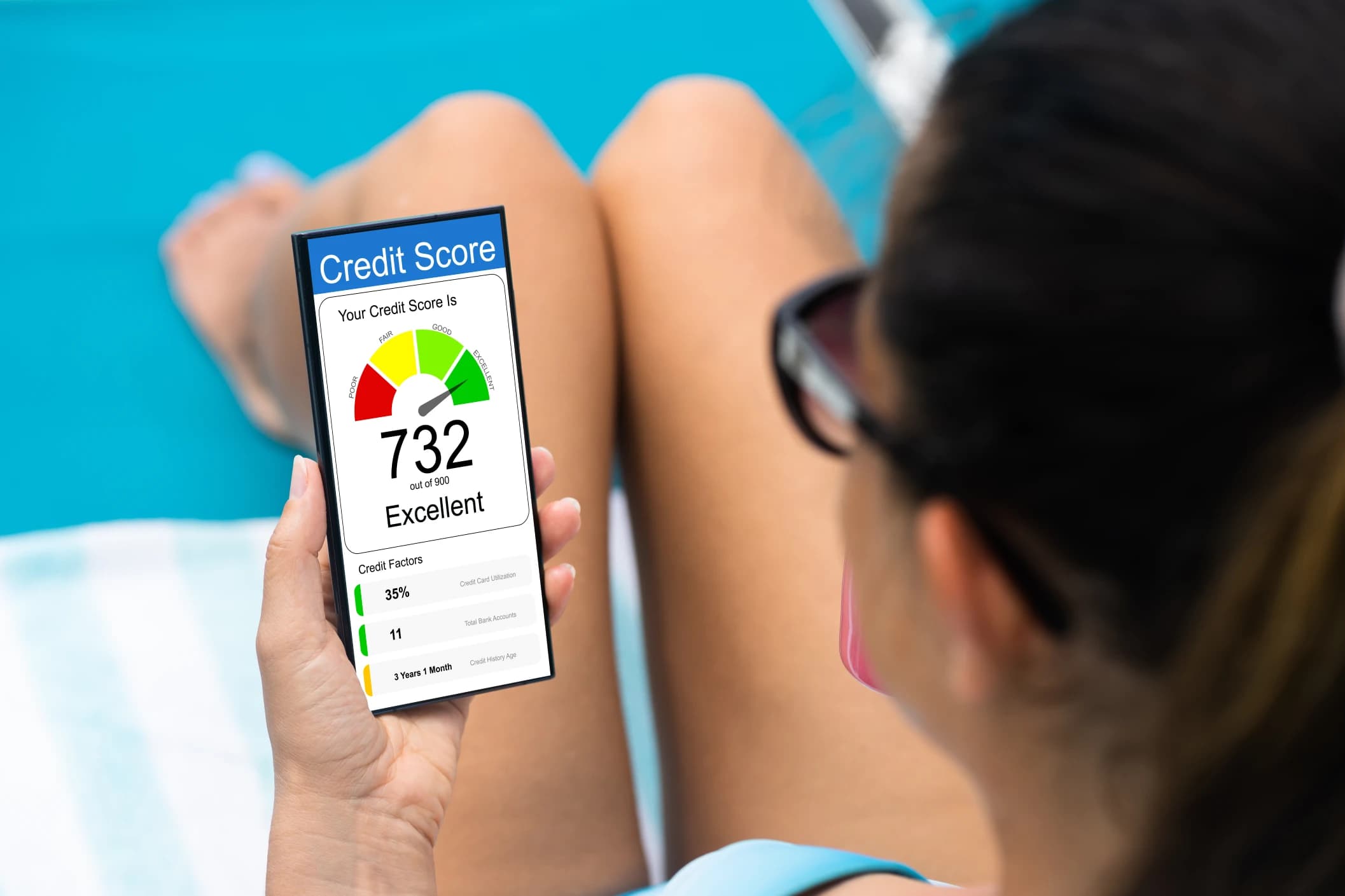There are many reasons why you might open a bank account. Perhaps you need to save money for a rainy day, or maybe you want to start investing in your future. Some people might open an additional bank account if they need more flexibility with their finances, or if they want to keep their money separate from their spouse's account. Regardless of the reason, opening a bank account is a wise decision that can help you achieve your financial goals.
However, despite the fact that there are many advantages to opening one, there are also a few drawbacks to consider, some of which could potentially negatively impact your credit score.
Does Opening a Bank Account Impact Your Credit Score?
The good news is that, for the most part, opening a bank account will not hurt your credit score. However, there are a few exceptions to that rule. Let’s break down the instances when opening a bank account may negatively impact your credit score.
1 - Banks may check your credit history when opening an account
When you decide to open a new account, there’s a high chance your bank will perform a credit check. Generally speaking, they will perform a soft inquiry, which is simply to approve your application.
However, a hard inquiry may be performed in rare instances. This can be done for several reasons, such as having a prior history of bad credit, requesting overdraft protection, etc. Unfortunately, hard inquiries will negatively impact your credit score. Before opening an account, it’s a good idea to ask your bank about which type of credit check they intend to perform.
2 - Bank accounts can be expensive
Many different features can be available for specific bank accounts. For example, some banks offer rewards programs that give you cash back or points for every purchase you make. Others might offer special rates on car loans or mortgages if you already have an account with them. And some banks offer unlimited transactions.
All of these features usually cost a monthly fee, and this is where you can run into some trouble. Fees can seriously add up, and if you’re not paying attention to the automatic monthly withdrawal of those fees, you may not notice your account drop into the negative. This is where your credit score can take a potentially negative hit.
3 - Abusing your overdraft privileges
One thing that can also affect your credit score is overdraft protection on your bank account. Overdraft protection is when the bank agrees to cover any transactions that exceed the amount of money you have in your account. This service usually comes with a fee, which can be expensive if it happens often. If you have overdraft protection on your account and make multiple payments in one month that go over the amount of money you have in your account, this could negatively affect your credit score.
4 - Closing your account
Did you know that closing a bank account can also negatively impact your credit score? There are many reasons why this could happen, such as closing an account with a negative balance or having unpaid fees. Check out our blog on how closing a bank account affects your credit score in Canada for more information.
5 - Frequently opening other accounts
We’ve already established that simply opening a new bank account, under normal circumstances, doesn’t necessarily mean you’re going to get a negative hit on your credit score. But what may be less well-known is how frequently you open bank accounts can affect your credit score. According to FICO (software for calculating a person's credit score) people who have opened more than eight bank accounts in the past two years are likely to be viewed as higher risk by lenders. So if you're planning on opening a new bank account, make sure to close any old ones first.
6 - Constantly losing your debit or credit card
This one may sound a little silly, but unfortunately, it’s true - if you regularly lose your debit or credit card and ask for replacements, it can negatively impact your credit score. It happens to everyone and is simply an honest mistake, but if it happens multiple times, your bank may view you as a risk, and this can have a potential impact on your credit score.
How to Avoid Negative Hits on Your Credit Report When Opening a Bank Account
It's no secret that maintaining a good credit score is important. A high credit score means you're a low-risk borrower, which in turn can lead to lower interest rates on loans and other borrowing products. If you're thinking about opening a new bank account, here are four ways to avoid negative impacts on your credit score.
1 - Allow yourself some time to establish a good credit rating before opening more bank accounts
Depending on your needs, you may have the desire to open multiple accounts. But if you can, start with one account first. Allow yourself some time to build up good credit with that account by ensuring you pay your fees on time, don’t abuse overdraft protection privileges and avoid having a negative balance.
2 - Always pay your bills on time
Naturally, this is obvious and self-explanatory, but if you continually pay your bills on time, you can rest assured that your credit score will always be in positive standing.
3 - Keep a healthy credit utilization ratio
A healthy credit utilization ratio is when you owe no more than 30% of your total available credit. In a nutshell, it means that you have money to use if you need it. If you have a healthy credit utilization ratio, banks will view you as someone they can trust with money, which is definitely a good thing for your credit score.
4 - Avoid closing old bank accounts unnecessarily
There are a lot of good reasons to close an old bank account. Maybe you've moved and don't have time to update your address with the bank. Maybe you're trying to simplify your finances by consolidating accounts. Or maybe you think it's just easier to have fewer accounts to manage. But before you close that account, make sure it's really inactive. Because if there's even a small balance on it, the bank may continue to charge fees - and those fees can add up over time.
5 - Don't apply for too many credit cards at once or rack up credit card debt
When you apply for a new credit card, the issuer will likely run a hard inquiry on your credit report. This type of inquiry can ding your score by five points or more, and it stays on your report for two years. A hard inquiry isn’t always a bad thing, but if you have several hard inquiries in a short period of time, it could signal to lenders that you’re in financial trouble and are desperate for new credit. As a result, they may be less likely to approve you for a loan or line of credit when you actually need it.
iCash Loans Won't Affect Credit Scores And Can Help You When You’re in a Bind
If you need some extra money and don't want to open a new bank account, iCash loans are a great alternative. We offer easy payday loans of up to $1,500, which can be paid back in flexible installments that work best for you. Plus, we’re available 24/7 and funds are sent to you via e-Transfer in just a few minutes, once you’ve been approved. Get started on your application today!













